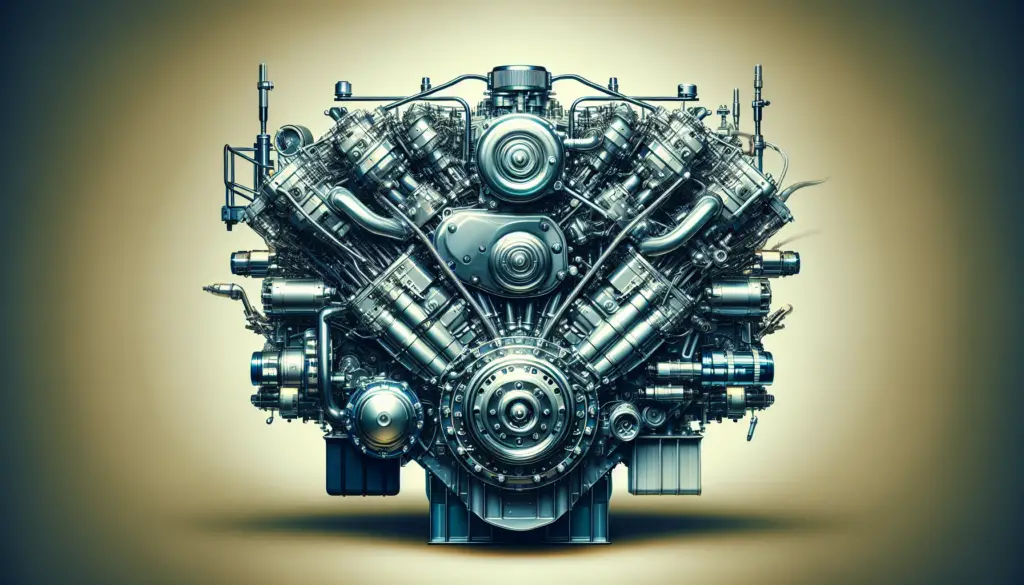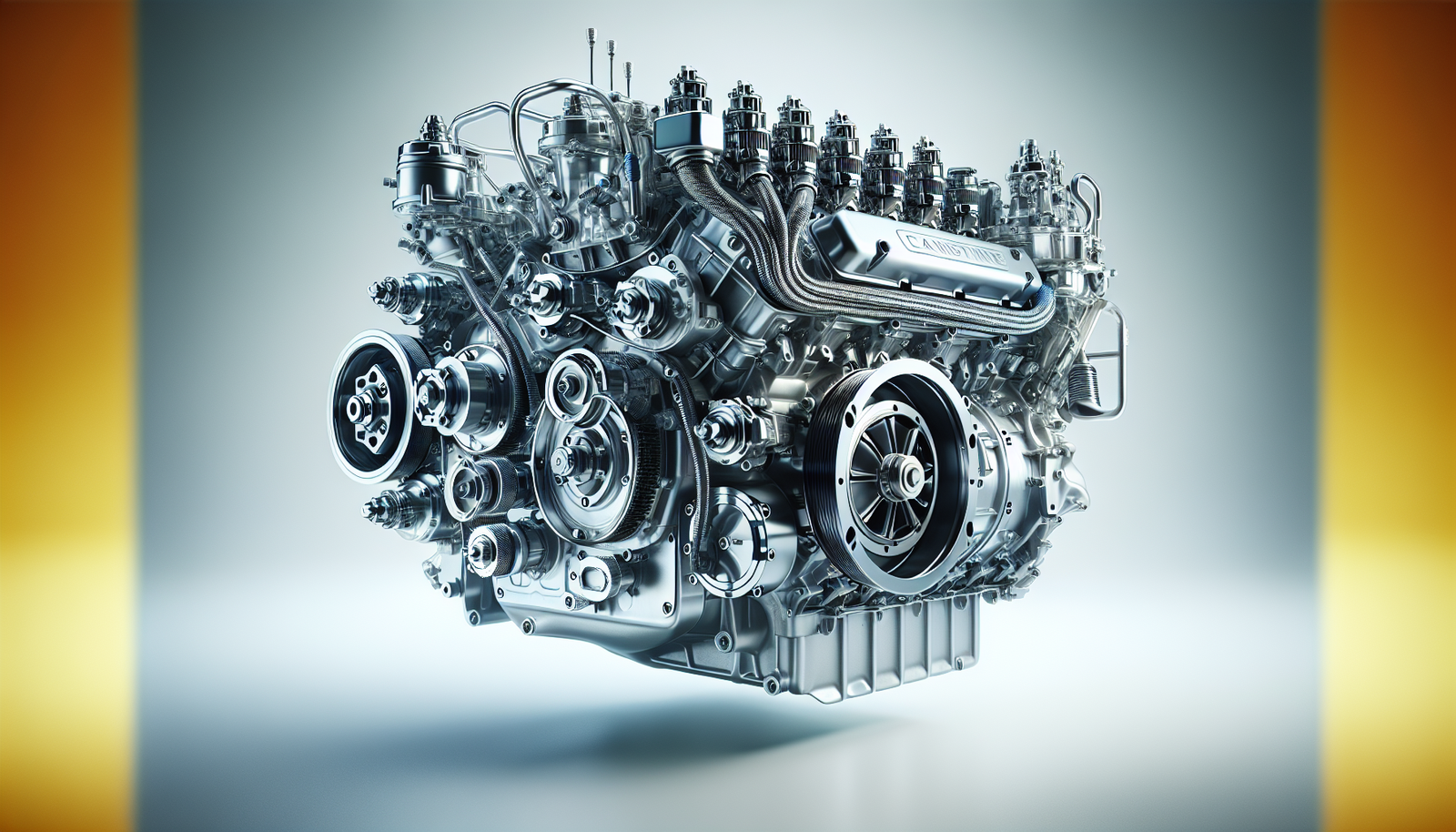If you’ve been pondering over ways to improve the resale value of your boat engine, look no further! This article brings you various strategies that can be the game-changer for your maritime asset. Get the scoop on everything from regular maintenance routines to engine upgrades and aesthetic enhancements that will certainly make your boat engine more appealing to potential buyers. Read on for practical tips that would make your boat engine command great value when you’re ready to sell, leaving you beaming without regrets. Buckle up and let’s set sail to a profitable journey full of nifty advice!

Regular Maintenance
Maintaining your boat engine regularly is one of the best ways to improve its resale value. Like with any machinery, timely servicing is key to longevity and reliability. Your focus should be on three main aspects: conducting regular scheduled servicing, replacing parts when necessary, and ensuring the engine oil is changed regularly.
Conduct regular scheduled servicing
It’s essential for you to keep up with the manufacturer’s specified service schedule. This could include engine tune-ups, general inspections, and various other checks depending on your engine model. Regular servicing ensures that minor issues are caught early and rectified, saving you from hefty repair costs down the line.
Replace parts when necessary
If regular servicing and inspections reveal damaged or worn out components, don’t hesitate to replace them. Keeping old, faulty parts can lead to bigger, more costly problems later. Ensure you invest in quality parts, to maintain optimal performance.
Ensure engine oil is changed regularly
Regularly changing the engine oil is a non-negotiable part of good engine maintenance. Old and degraded oil can result in poor lubrication leading to wear and tear of the moving parts in your engine.
Keeping the Engine Clean
Next to regular maintenance, keeping your engine clean is a golden rule. There are three main things to look into here: cleaning methods for exterior parts, cleaning the interior parts, and preventing rust.
Cleaning methods for exterior engine parts
Cleaning of the exterior engine parts is a visual treat for potential buyers. It also helps you spot any leaks, cracks, or any other issues that need attention. Use specialized engine cleaners and degreasers available in the market and avoid abrasive materials or harsh chemicals.
Cleaning the interior parts of the engine
Just as important as cleaning the exterior engine parts is cleaning the interior. Regular flushing of your engine keeps it free from salt, dirt, and other foreign particles. This process helps to maximize your engine’s efficiency and lifespan.
Removing and preventing rust
Boat engines are particularly susceptible to rust due to their constant exposure to water. Regular checks for rust and prompt action whenever you spot any can go a long way in improving the resale value of your boat engine.
Proper Storage
How and where you store your boat equally matters. Opt for a dry, safe place, use an engine cover, and don’t ignore winterization if you live in a cold climate.
Benefits of storing in a dry and safe place
Storing your boat engine in a dry and safe place protects it from various elements that can expedite deterioration. It reduces the chances of rust, mold growth, and other types of damage that can arise from exposure to harsh conditions.
Using engine cover to protect from elements
An engine cover is a simple yet effective way of protecting your engine from dust, excess moisture, and UV rays. It’s a little investment that can yield big returns, as it can significantly prolong the lifespan of your engine.
Winterization of boat engine for colder months
For colder months, you need to winterize your boat engine. This process involves steps like coolant system flushing, fuel stabilization to prevent gum formation, exhaust system draining, and several others, which protect your engine from the detrimental effects of freezing temperatures.
Use of Quality Fuel and Oil
Using high-quality fuel and oil is a simple yet effective way to retain your boat engine’s value. Here, you need to focus on the right fuel, quality oil, and understanding their impact on performance.
Choosing the right fuel for your engine
Different engines require different fuel types, so always stick to the recommended fuel for your engine. Wrong fuel can lead to inefficient combustion and eventual engine damage.
Selecting high-quality engine oil
As with fuel, don’t skimp on oil quality. High-quality engine oil keeps your engine running smoothly, extends the engine’s life, and ultimately retains its resale value.
Understanding the impact of good fuel on engine performance
Good fuel and oil don’t just keep your engine running; they also help maintain optimal performance. Poor quality fuel can lead to sluggish performance and even engine damage in the worst case. Therefore, understanding the role of good fuel and oil is crucial to maintaining your engine’s value.

Engine Modifications
Modifying an engine can be tricky. It can either increase the engine’s value if done right or hurt it if done wrong. The main considerations here are upgrade decisions, originality versus modifications, and understanding the right mods for your engine.
Upgrading with performance-enhancing modifications
Performance-enhancing mods can increase your engine’s value if carefully chosen and professionally installed. They may include things like turbochargers, custom exhausts, or software tuning. The key is selecting mods that are suitable for your specific engine type.
Maintaining engine’s originality vs modifications
While some buyers may appreciate certain upgrades, others may prefer an original, untouched engine. It’s important to remember that modifications can sometimes limit your pool of potential buyers.
Understanding the right modifications for your engine type
Because modifications capacity varies based on the type and size of your engine, not all mods may be suitable for your specific engine. So it’s important to understand what mods are suitable and beneficial for your particular engine.
Record Keeping
You want to maintain concise maintenance records for future potential buyers. Focus on recording your regular maintenance, any major repairs or replacements, and be transparent on how these records can impact buyers’ perception.
Keeping proper maintenance records
Proper maintenance records serve as proof of care for your boat engine and contribute to a positive perception among potential buyers. They show that you have not just conducted regular maintenance but that you have done so systematically and methodically.
Documenting any big repairs or replacements
If you’ve had any major repairs or parts replaced, record these as well. These records can be an indicator of the current condition of the engine and how well it was maintained.
How records impact potential buyers’ perception
Well-kept records can directly influence a potential buyer’s perceptions positively. They show reliability and transparency, which are key value-adding factors.
Professional Inspections
Regular professional inspections are another value adder. They are crucial when preparing to sell, but also greatly beneficial in general maintenance.
The importance of having regular professional inspections
Professional inspections are critical to your boat engine’s maintenance. They can catch small problems before they become big issues and ensure that your engine is always in excellent working condition.
Undergoing inspections before selling
Going for an inspection before selling provides documented proof of your engine’s state. It can reassure potential buyers about the quality and upkeep of your boat engine.
How a clean inspection report adds value
A clean inspection report from a professional can add substantial value to your boat engine sale. It shows that the engine has been thoroughly checked and found free of issues, setting buyers’ minds at ease and showing your commitment to meticulous maintenance.
Engine Appearance and Cosmetic Condition
While performance is critical, never underestimate the allure of a shiny, well-kept engine. Focus on fixing any visual defects like scratches, dents, or chips, consider what buyers find aesthetically appealing, and think about adding value through a fresh paint job.
Addressing chips, scratches, and dents
Attention to detail can make a real difference. Therefore, take the time to fix any chips, scratches, or dents in your boat engine. These small defects can detract from the overall appearance and may lead to concerns about how well the engine has been cared for.
Aesthetical aspects boat buyers consider important
Buyers typically value cleanliness, a polished look, and a well-maintained appearance. Take note of these aesthetic aspects and ensure you put effort into them when preparing your boat engine for sale.
Repainting the engine as a value-add
A fresh layer of paint can do wonders for the appearance of your engine and hence, for its value. Just be sure to do it professionally or with great care, to avoid a patchy or uneven finish.
Invest in Marine-Specific Parts
Marine-specific parts are specifically designed to withstand harsh marine conditions, which makes them an ideal choice for your boat engine. Understanding their advantages, knowing the effects of non-marine parts on resale value, and locating the right parts for your engine can significantly enhance its value.
The advantage of marine-specific parts
Marine-specific parts offer a greater resistance to corrosion and wear and tear, which allows your engine to perform optimally for longer. This tends to be attractive to prospective buyers, adding value to your engine.
The impact of non-marine parts on resale value
While non-marine parts might initially be cheaper, they could reduce your boat engine’s resale value. They might not last as long, leading to more frequent replacements and, in turn, lowered buyer confidence.
Locating the right parts for your engine
Finding the right parts for your engine can be a daunting task. However, investing time and resources in locating the correct marine-specific parts can pay off in improved performance and resale value.
Maintain the Boat Overall
Lastly, remember – the condition of the boat as a whole will reflect on the engine and impact its value. This means you need to keep the boat’s interior and exterior in good shape as well.
How overall boat condition affects engine value
Potential buyers are likely to assess the overall boat before looking at the engine. Consequently, a well-maintained boat can create a positive impression and increase buyers’ confidence in the state of the engine.
Improving the boat’s interior
The interior condition of your boat is just as important as the exterior. A clean, well-kept interior suggests good overall maintenance, which might lead buyers to assume that the engine has been similarly well cared for.
Keeping the boat’s exterior in top shape
Never neglect the exterior of your boat. A clean, waxed, and polished hull not only looks attractive to the prospective buyer but also provides an impression of an overall well-maintained boat—and therefore, a well-maintained engine.
In conclusion, maintaining and preparing your boat engine for resale isn’t a one-time activity. It’s a continuous, proactive process that includes regular maintenance, cleanliness, proper record-keeping, and attention to details. Adhering to the aforementioned guidelines can certainly help increase the resale value of your boat engine significantly.

